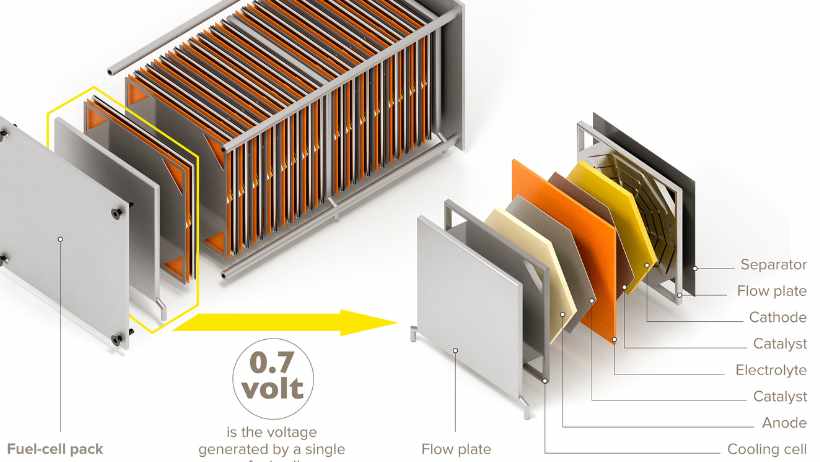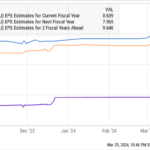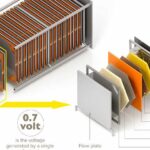
Find out how graphene helped Japanese researchers at the University of Tsukuba make a significant advancement in fuel cell technology. This innovative invention stops degradation, increases fuel cell efficiency, and has enormous potential for a sustainable future.
Japanese researchers at the University of Tsukuba have made significant progress in the development of direct methanol/formic acid fuel cell technology and their quest for carbon neutrality. They have effectively created a ground-breaking graphene filter by utilizing the remarkable qualities of graphene. This filter preserves high proton conductivity while efficiently blocking big fuel molecules to stop fuel cell deterioration. The efficiency and range of vehicles fueled by fuel cells are improved by their capacity to prevent fuel crossover. This outstanding accomplishment represents a major advancement in fuel cell technology and has enormous possibilities for a sustainable future.
Japanese Researchers Use Graphene to Breakthrough in Fuel Cell Technology
Overview
One potential answer in the search for environmentally acceptable and sustainable energy sources is fuel cell technology. Fuel cells, of which hydrogen is the most widely utilized fuel source, provide a clean and effective means of converting chemical energy into electrical energy. The breakdown of the cell brought on by the crossover of large fuel molecules is one of the difficulties with fuel cell technology, though. In a fascinating development, Japanese researchers at the University of Tsukuba have successfully harnessed the potential of graphene to advance fuel cell technology.
Background Data
Due to its special qualities, graphene, a sheet of carbon atoms only one atom thick, has garnered a lot of interest in the scientific world. It is a versatile material with many uses due to its outstanding mechanical strength, thermal stability, and electrical conductivity. Fuel cell technology may undergo a revolution and get above its current constraints if graphene is incorporated.
The University of Tsukuba’s Input
Researchers at the University of Tsukuba have upgraded graphene fuel cell technology. Japanese scientists are dedicated to innovation and environmental sustainability, therefore they’re boosting fuel cell car economy and reliability.
Creation of the Graphene Filter
The creation of a graphene filter to solve fuel crossover in fuel cells is one of the major accomplishments of Japanese scientists. This novel filter selectively permits protons to pass through while preventing bigger fuel molecules from getting to the cathode. The graphene filter keeps the fuel cell from deteriorating and increases its lifespan and performance by efficiently separating the fuel molecules.
Preventing Big Fuel Molecules
Commonly utilized in fuel cells, large fuel molecules like methanol and formic acid have the potential to seriously harm the cell through crossover. The University of Tsukuba’s graphene filter efficiently stops these big fuel molecules so that only protons may go through. The fuel cell system’s overall efficiency is increased and the risk of cell deterioration is significantly decreased thanks to this selective filtering method.
Stopping Fuel Cell Deterioration
In the industry, fuel cell deterioration is a big concern. Fuel molecules have the potential to contaminate the cathode catalyst during their transition from the anode to the cathode, which would lower fuel cell performance and shorten its lifespan. By acting as a barrier, the graphene filter keeps the cathode catalyst intact by stopping fuel molecules from crossing over. This advancement in fuel cell technology creates new opportunities for the widespread use of fuel cell-powered products and provides a workable solution to the degrading problem.
Sustaining Elevated Electron Conductivity
Ensuring good proton conductivity is just as vital as preventing cell breakdown, even if blocking big fuel molecules is crucial. The main charge carriers in fuel cells that facilitate the flow of electrical current are protons. The University of Tsukuba’s graphene filter effectively transports protons across the cell membrane by preserving high proton conductivity. The total effectiveness and efficiency of fuel cell systems depend on this attribute.
Increasing Fuel Cell-Powered Vehicle Efficiency
The utilization of graphene in fuel cell technology has the potential to significantly improve the efficiency of cars powered by fuel cells. The graphene filter helps to improve these vehicles’ performance and range by obstructing big fuel molecules and preventing fuel cell deterioration. Fuel cell vehicles are more efficient and can go farther between fuel stops without requiring frequent recharging. This advancement creates new opportunities for fuel cell technology to be widely adopted in the transportation industry, lowering greenhouse gas emissions and promoting sustainability.
Progress in the Aim for Carbon Neutrality
An important advancement in the quest for carbon neutrality is fuel cell technology. Fuel cells generate power without the toxic emissions linked to conventional fossil fuels, making them a clean energy source. The development of graphene by Japanese researchers at the University of Tsukuba has accelerated the shift to a civilization that is carbon neutral. Fuel cell technology is becoming a more attractive and feasible solution for supplying energy needs while reducing environmental effect as its efficiency and dependability increase.
Direct Fuel Cell Technology for Methanol and Formic Acid
Also, graphene-based fuel cell technology improves direct methanol/formic acid fuel cell technology. Methanol and formic acid are popular fuels due of their energy density and portability. Their transition to fuel cells has caused durability and efficiency difficulties. The graphene filter invented by University of Tsukuba academics has helped solve these issues. Graphene filters might improve direct methanol/formic acid fuel cell efficiency, reliability, and cost.
The graphene-based fuel cell technique developed by Japanese researchers at the University of Tsukuba has enormous potential for sustainable energy development. A graphene filter that prevents cell degradation and blocks large fuel molecules might improve fuel cell car efficiency and reliability.
This discovery advances direct methanol/formic acid fuel cell technology and brings us closer to carbon neutrality. Scientists pushing graphene-based fuel cell technologies are expanding renewable energy sources.


















